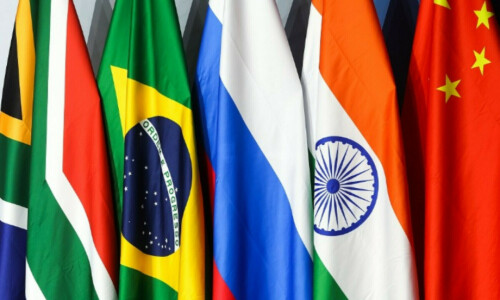John J. Mearsheimer, a US scholar at Chicago University, asserts that international politics has always been a brutal and risky business and is likely to remain so.
He writes in the introduction to the revised edition of his book “The Tragedy of Great Power Politics”: ” The world is doomed to a never-ending battle between the great powers because no state will ever achieve global dominance. There are no business as usual powers in the worldwide framework put something aside for a periodic hegemon that needs to keep up with its prevailing situation over possible opponents.”
He makes the observation that a state’s desire for more power never goes away. Being a hegemon, the only great power in the system, is the ultimate goal. The global financial, political, and economic order is in a state of flux against the aforementioned background.
As a result of Tel Aviv’s genocide in Gaza and Lebanon, the Israeli war in the Middle East has caused a significant political divide between the global North and the global South. Additionally, Israeli allies have suffered a significant loss of credibility.
Following the conclusion of the BRICS summit, the Kremlin and Beijing push proposals to significantly alter the global financial system. In Kazan, where the BRICS (Brazil, Russia, India, China, and South Africa) Summit is taking place, Chinese President Xi Jinping reiterated that Russia and China “intend to further enhance coordination on all multilateral forums in order to ensure global security and a just world order.” He said that their strategic partnership was a stabilizing force in the midst of the biggest changes in a century.
China, according to Western observers, contributes 60% of the group’s economic output, allowing Beijing to pledge additional investments and loans to other members. China is a magnet because it is Britain’s largest economy. Proposals to fundamentally alter the global financial system have been advanced by both Beijing and the Kremlin.
Economic and financial sanctions have disrupted global economic relations and undermined countries’ sovereignty in light of the global South. Additionally, protectionist measures and trade restrictions hinder global sustainable development and undermine the multilateral trading system.
Sanctions have stifled free trade, and as analyst Aqdas Afzal points out, global economic thinking has shifted from free trade to strategic trade, where state power now shapes competitive advantage, particularly in developed economies of the West. However, the US has expressed concern about Moscow flexing its diplomatic muscle as the Ukraine conflict rages. The affected nations are currently struggling to overcome the obstacles they face.
While the United States has denied that the group could become a “geopolitical rival,” it has expressed concern about Moscow’s diplomatic prowess in the raging Ukraine conflict. According to former Goldman Sachs economist Jim O’Neill, “I would take BRICS seriously when I see signs that the two countries that matter, China and India, are actually, really trying to agree on things, rather than trying to confront each other constantly.”
The escalating conflict in the Middle East and President Vladimir Putin’s proposal for a BRICS-led payment system to compete with Swift, an international financial network from which Russian banks were cut off in 2022, were the main topics discussed at the summit. According to reports in the media, the final communiqué did not include any specifics or timelines for any additional projects aimed at facilitating trade between BRICS nations.
According to Mr. Putin, the members were working on a financial messaging system that was safe from Western sanctions like Swift. Additionally, he asserted, member nations accounted for more than 40% of the global dynamics’ GDP growth over the past decade. BRICS is slowly, brick by brick, laying the foundation for a more democratic and just world order.
According to Mr. Putin, members of the BRICS will increasingly rely less on external influence or interference for their economic growth. In essence, this is economic sovereignty.
Prior to this, the Shanghai Cooperation Organization (SCO) called for prioritizing the use of national currencies in mutual settlements in an effort to reduce dependence on the US dollar and other foreign currencies.
Pakistan is one of the SCO members that has signed bilateral currency swap agreements, allowing them to trade directly in their respective currencies.
By integrating the instant payment system Raast with the Buna platform of the Arab Monetary Fund, the State Bank of Pakistan claims that Pakistan has achieved a significant milestone by allowing payments in rupees between Arab nations and Pakistan.
Additionally, the SCO Summit decided to expedite discussions regarding the establishment of financial institutions, which are anticipated to aid in economic integration, trade facilitation, and regional connectivity. The SCO Investment Fund, the SCO Development Fund, and the SCO Development Bank are examples of these.
According to Russian political scientist Evgenia Makhmutova, the Shanghai spirit serves as a model for multilateral cooperation because it ensures that every member state has an equal voice regardless of economic size, military strength, or international influence.



